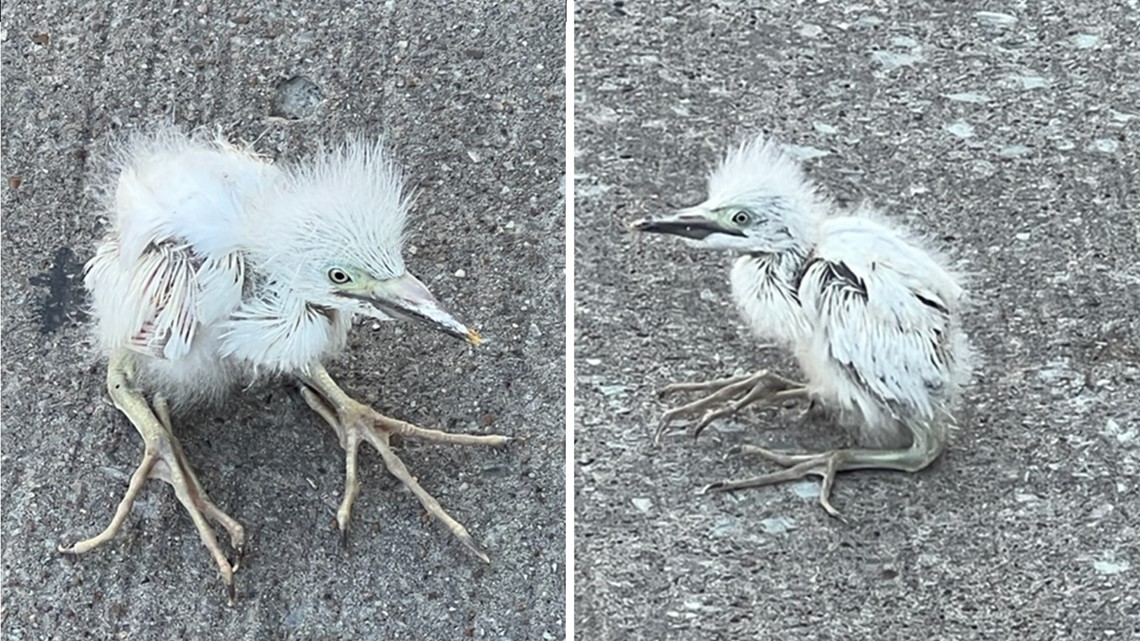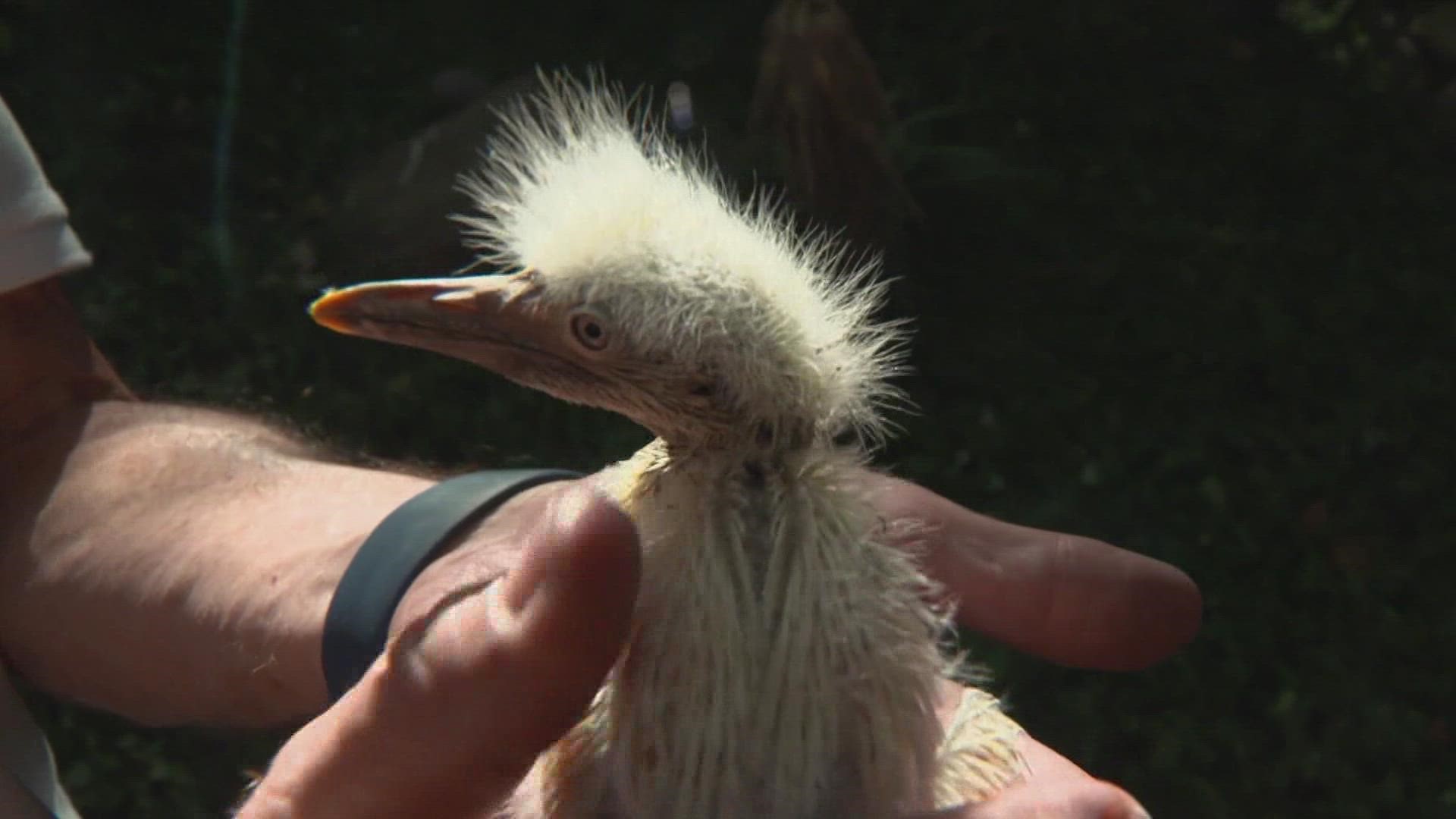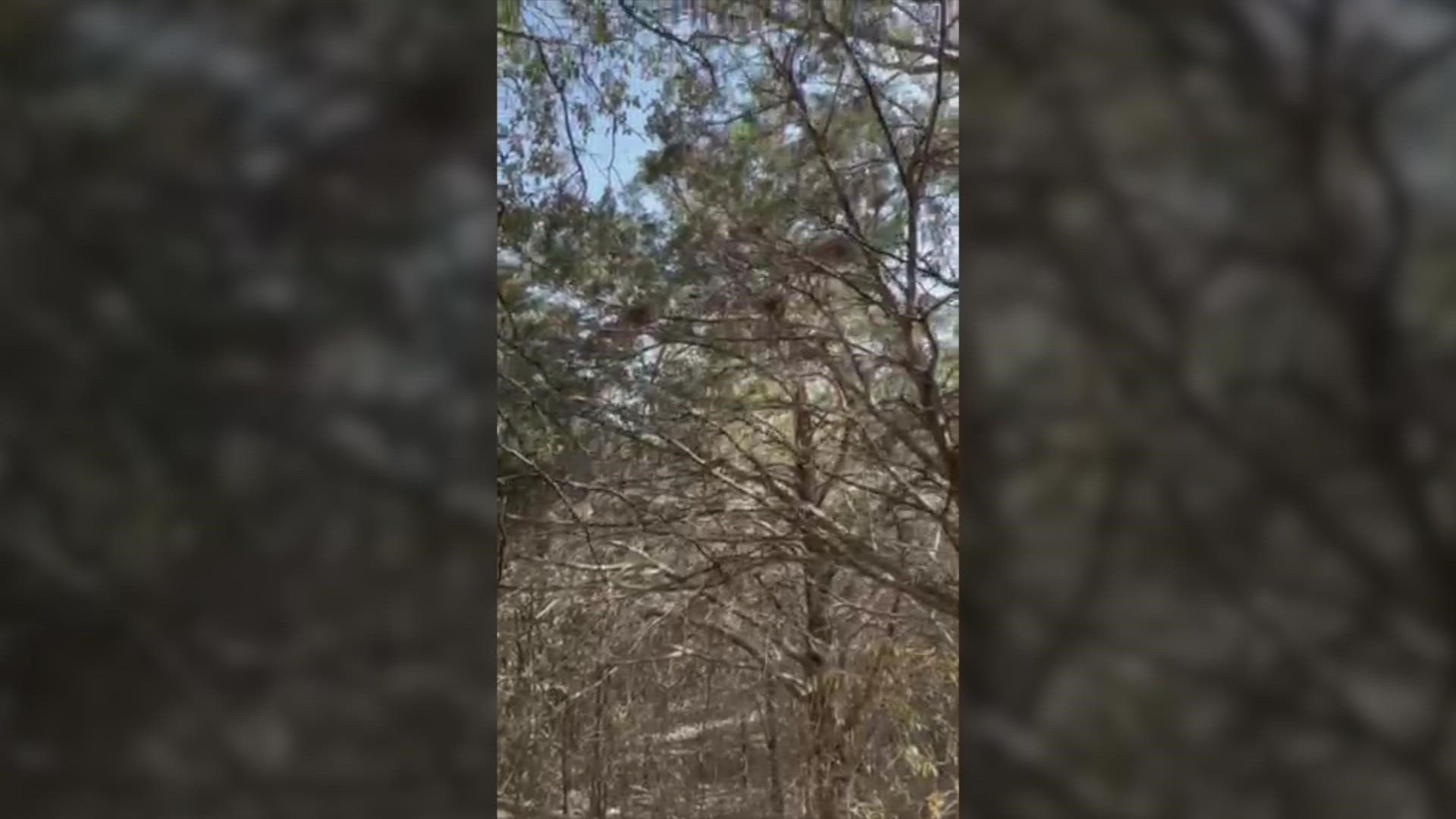MCKINNEY, Texas — You have to see it to believe it -- the noise, the odor and the hundreds of eggs laying across a large wooded area across a McKinney neighborhood. And now residents are looking for solutions.
"They die all over the yard. We pick them up daily. This is a buffet for bobcats, vultures and hawks," said Jerry Kreisler, of the Kings Lake neighborhood.
Kriesler said he and his wife first started noticing the birds in May and almost overnight a couple dozen turned into a "covering" of birds in the high canopy near their home.
"We're locked out of our yard for pretty much this summer Which, in this heat, may be a plus," laughed Jerry.
Nancy Rovik lives in McKinney, and travels through the Kings Lake area often. She has noticed hundreds of egrets nests and has seen eggs being run over and falling from the trees in the neighborhood. She told WFAA that the wildlife department has removed hundreds of dead birds from the area.
Rovik knows her fellow residents are frustrated, but says her heart hurts for the birds being killed.
She has seen eggs in the street and has even to stopped to help move them.
Rovik sent WFAA the following video, showing birds in the trees and all over the ground.
Kreisler told WFAA that he and his wife have collected between 50 and 60 baby birds on their property alone. With the help of Kings Lake HOA they have connected with Rogers Wildlife Rehab out of Hutchins, TX to rescue up to 250 birds.
Egrets are federally protected by the Migratory Bird Treaty Act. So once they nest, they cannot be harassed in any way, says De St. Aubin.
St. Aubin is the animal services manager for the City of McKinney. He told WFAA that his team is aware of the birds nesting in a wooded area in the middle of the residential neighborhood.
St. Aubin said it is expected to see some deceased birds around a nesting site, most likely due to the extreme heat wave across North Texas and a large number of nesting birds. St. Aubin said baby birds frequently fall from the nests or are pushed out by the larger birds.


On Friday, WFAA spoke with Rachel Richter of Texas Parks and Wildlife. Richter says herons and egrets are colonial nesting birds -- meaning they nest in large groups to help avoid predators.
"The idea behind it is there are is safety and numbers. It gets to a point where it's too difficult to count," said Richter.
Richter said depending on the species of bird, nesting begins as early as February and lasts as late as October.
She said there are several species of egrets but the most common found in North Texas is the cattle egret.
While nothing can be done now once they've nested and the eggs have hatched, cities and neighborhoods can start formalizing a plan to prevent them from returning. Richter said it starts with thinning the canopy around the property and also implementing audial and visual deterrents.
Animals Services is hosting a free webinar Wednesday, July 27 at 7 p.m. to share tips on how residents can help prevent egrets next year and what can and cannot be done about the birds. The city said a team is currently working on promotional materials for residents, especially those living in the Kings Lake area.


